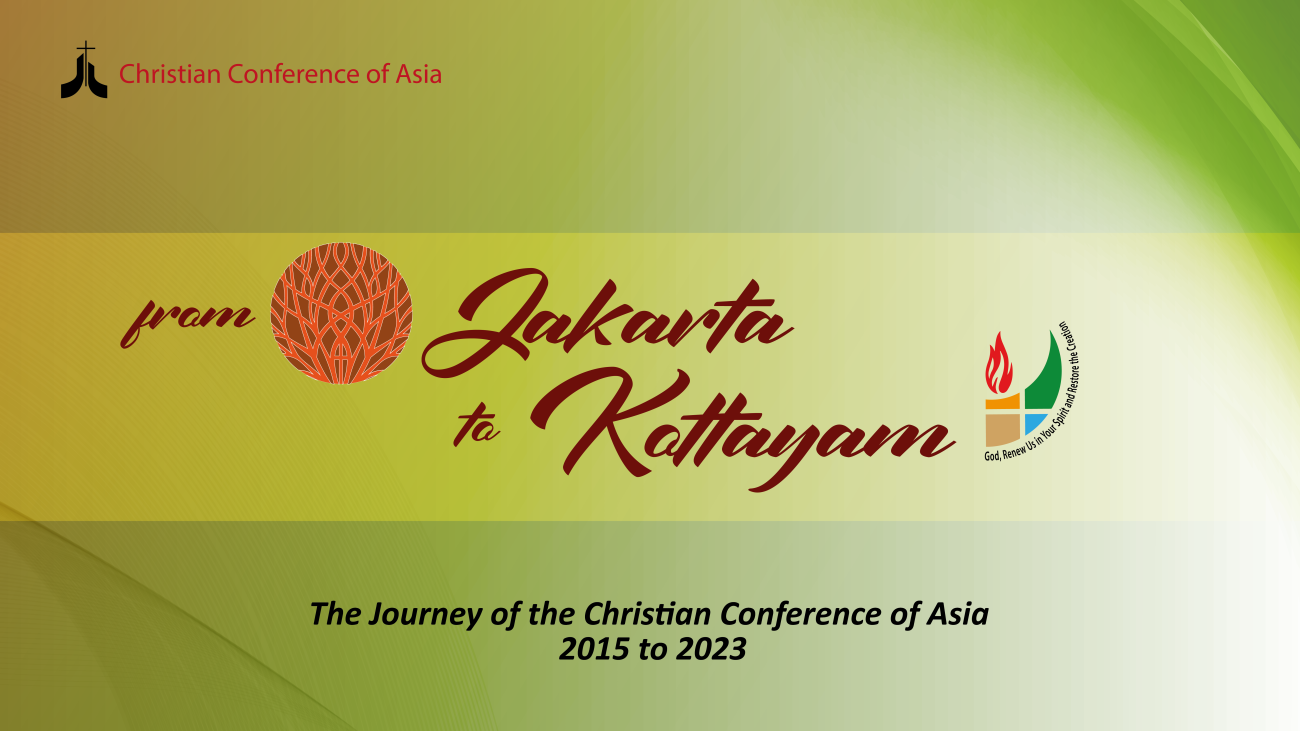CCA releases ‘From Jakarta to Kottayam’, report of past eight years

Kottayam, India: The Christian Conference of Asia (CCA) released the narrative programme and activity report, ‘From Jakarta to Kottayam', covering the peroid from 2015 to 2023.
The comprehensive report provides an account of all programmes and activities undertaken by the CCA since the 14th General Assembly in May 2015 in Jakarta, Indonesia, up until the 15th General Assembly which will commence in Kottayam, India. Although the original mandate was from 2015 to 2020, the COVID-19 pandemic delayed the convening of the 15th CCA General Assembly and prolonged the implementation period for another three years.
As per the new strategic programme plan adopted by the CCA Executive Committee, four key programme areas were introduced starting from 2016, such as Mission in Unity and Contextual Theology, Ecumenical Leadership Formation and Ecumenical Spirituality, Building Peace and Moving Beyond Conflicts, and Prophetic Diakonia and Advocacy. The Action Together to Combat HIV and AIDS in Asia (ATCHAA) is a special project of the CCA.
'From Jakarta to Kottayam' narrates about a total of 247 programmes organised with 10,140 full-time participants who have attended.
“The focus of this implementation period has been the promotion and strengthening of ecclesial unity, stimulation of initiatives in dynamic Christian living and action, development of effective Christian responses to the challenges of emerging contexts, promotion of relationships with people of other faiths in Asia, protection of human rights and human dignity, peace with justice, and the promotion of care for the creation,” said the CCA General Secretary Dr Mathews George Chunakara.
A printed copy of the report book will be made available to all Assembly participants during the 15th CCA General Assembly.










